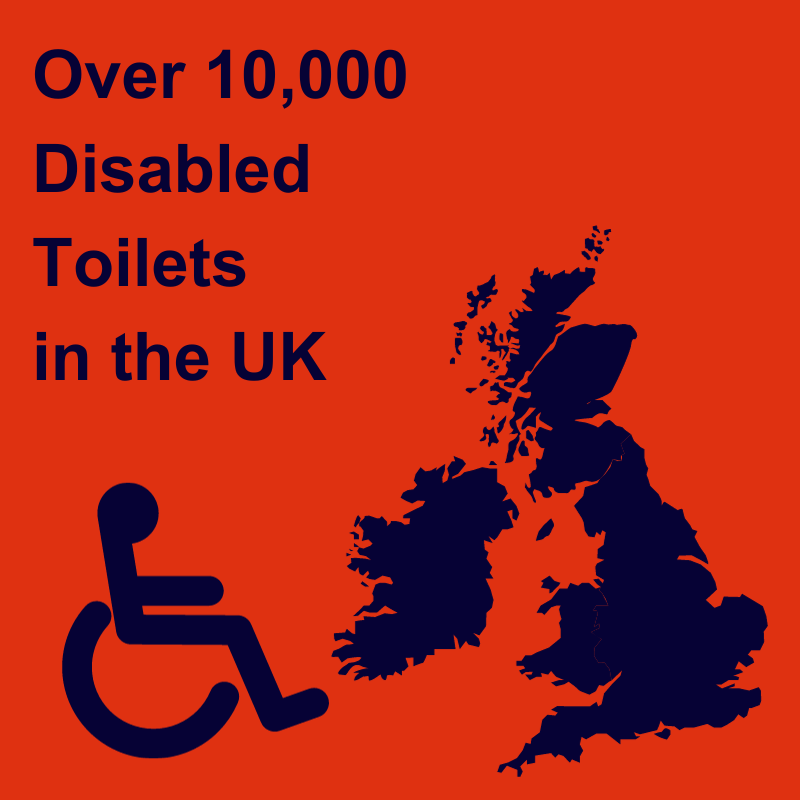
In the run up to World Toilet Day we are taking the time to reflect on the history of accessible toilets in the UK. This sponsored article was provided to us by Disability Rights UK, the sole manufacturer of the official Radar Key which grants access to disabled toilets across the country. As they describe, it took many years for the provision of accessible toilets to be where it is today, and this World Toilet Day we are spreading awareness about how we got there.
The first accessible toilet was created in Norwich by a disabled architect named Selwyn Goldsmith. He was an early pioneer of the idea of 'institutional discrimination’; he stated that access problems in society lay not with disabled people themselves, but with systems and barriers (physical and attitudinal) which are placed in their way. This is also known as the social model of disability.
He was already advocating for architects and planners in local authorities to design accessible buildings and facilities. He interviewed 284 local disabled people and found their key priority was public toilets – followed by shops, restaurants and churches.

Goldsmith later worked with his wife, Becky Goldsmith, on the issue of inequality in toilet facilities in major buildings. Their research highlighted the issue of poor levels of toilet provision for women compared to men, as well as for disabled people.
National progress on accessible toilets was slow until the emergence of the Disabled People’s Movement, the long running campaign for anti-discrimination legislation for disabled people. Issues around housing and personal assistance also led to the emergence of the Independent Living movement, which included the formation of the National Centre for Independent Living (NCIL) in 1981. The call for buildings and the environment to be made more accessible therefore went hand-in-hand with disabled people leading other campaigns against discrimination.
Government regulations increasingly pressed building owners to ensure that public buildings were accessible and contained suitable facilities. This did not become law until the Disability Discrimination Act (DDA) in 1995. All existing Acts relating to discrimination were later combined into the Equality Act in 2010.
The introduction of accessible toilets was a significant step, but it remained difficult to find ones which were free, safe and clean due to public misuse and poor management of facilities.
Adding locks made the toilets easier to keep an eye on and maintain, but it meant disabled people could only use them on request. This created separate problems when the key could not be located by staff, or the person who had it was off duty that day.
The Radar Key
The Royal Association for Disability and Rehabilitation (Radar) worked in partnership with Nicholls & Clarke, who invented the toilet locks that are still fitted and used today, to launch a National Key Scheme in 1981. The Radar Key was born.

In 2012, Radar and NCIL merged with a third organisation called Disability Alliance to form Disability Rights UK. As well as the keys which bear our legacy name, we still produce and sell the Disability Rights Handbook ‘the benefits bible’, now in its 48th edition.
Buying from Disability Rights UK means you can be sure your key is manufactured and guaranteed by the makers of the Radar locks themselves. We rely on sales to maintain the integrity of the National Key Scheme. As a charity led directly by disabled people, we put back 100% of any Radar Key profits into funding our services, such as our free helplines and factsheets, innovative projects to support independent living and standing up for disabled people’s rights.
Disability Rights UK continues to campaign for the rights of all Disabled people, including people with non-visible conditions, and to raise awareness of the fact that not everyone who needs an accessible toilet ‘looks disabled’.

Thank you for reading
This article was sponsored by Disability Rights UK, the distributor of the Radar Key.
Disability Rights UK is the sole distributor of the manufacturered Nicholes and Clarke Radar Key. You can find out more about them and their products at the link below.